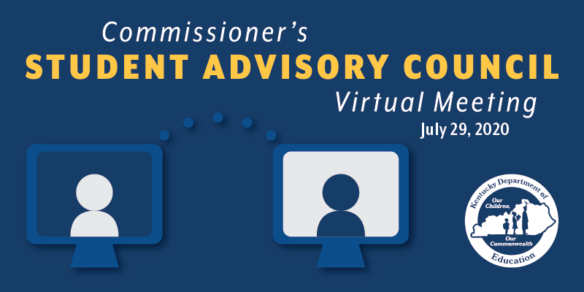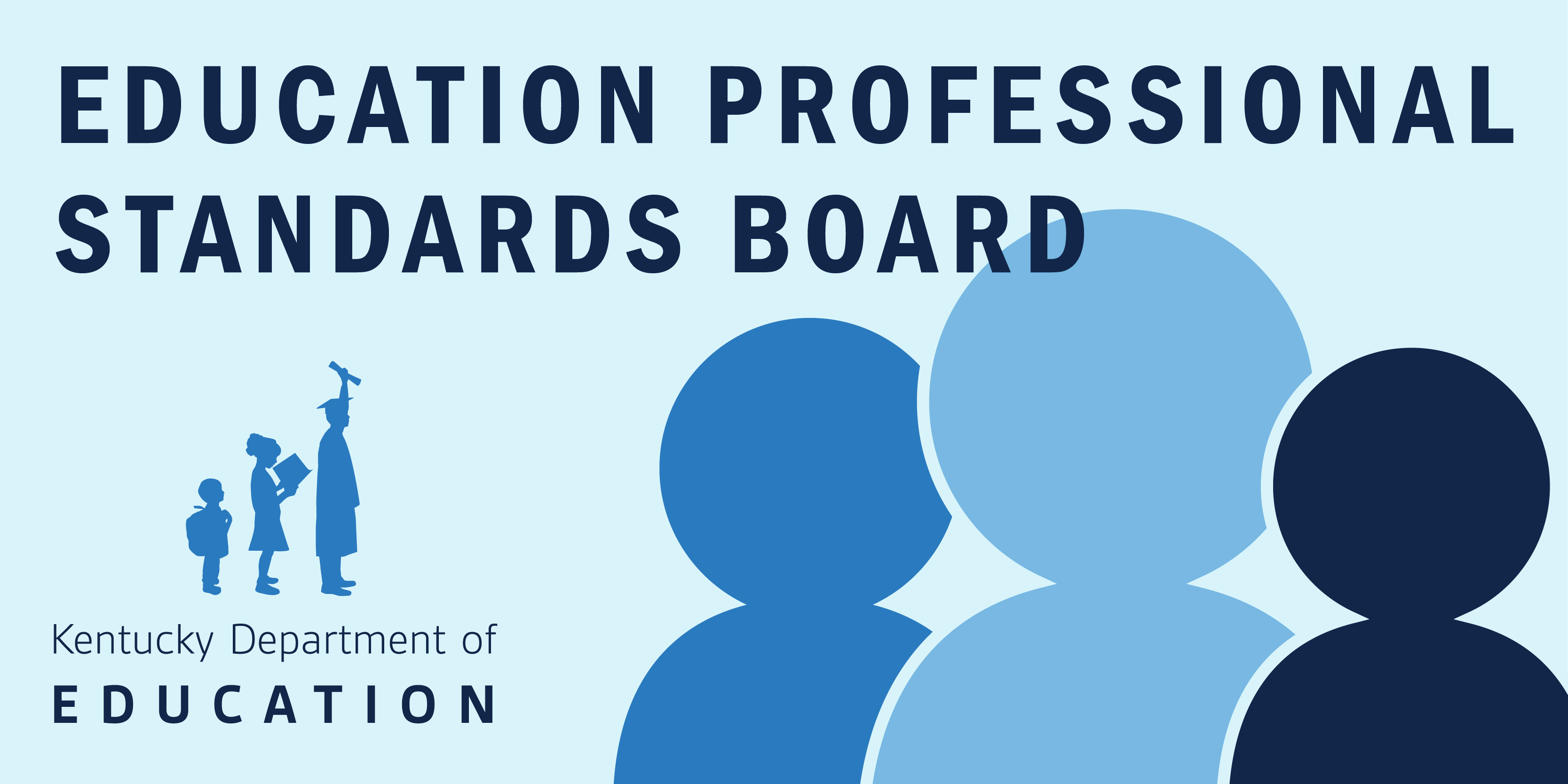
By Sky Carroll
sky.carroll@education.ky.gov
The Commissioner’s Student Advisory Council – comprised of 29 high school students throughout Kentucky – met virtually on July 29 to discuss concerns and hopes for the 2020-2021 school year. It was the first meeting for the 2020-2021 council.
Presenters from the Kentucky Department of Education (KDE) led discussions about non-traditional instruction (NTI) during the coming school year as well as how to support students coping with trauma.
During introductions, several students voiced their hopes for improvements to the ways Kentucky schools address mental health of students and hopes to break the stigma surrounding it.
Jason Glass, Kentucky’s new commissioner of education, is looking forward to working with the students to improve Kentucky schools and “reimagine what school can be.”
“Having students in the conversation changes the conversation,” Glass said. “When you have people there that are affected by the decisions, it really fundamentally changes decisions for the better.”
Damien Sweeney, program coordinator for comprehensive school counseling in KDE’s Office of Teaching and Learning, gave a presentation on mental health and how best to support students and staff when instruction begins, whether in-person or virtually. Sweeney also led the council through several guiding questions surrounding mental health to spark discussion.
Sofie Farmer, a 12th-grade student from Gatton Academy, said she thinks the language students and teachers use to discuss mental health needs to change.
“We need to use language that promotes self-expression,” Farmer said. “We need to stop using language that encourages people to keep emotions bottled up.”
Sweeney explained that often people “wait for the ball to pop,” when it comes to coping with emotions and mental health challenges.
Gracie Smith, a 10th-grade student from the Kentucky School for Blind, said she believes discussing more types of mental illnesses throughout the school year, rather than a one-time conversation, will help break the stigma.
Similarly, Laila Hayes, a 12th-grade student from duPont Manual High School (Jefferson County), said changing the way people think about the importance of mental health altogether will help.
“A lot of students accept the idea of sacrificing mental health in order to maintain grades or even social status,” Hayes said. “That shouldn’t be normal.”
When it comes to mental health in schools, Sweeney pointed out that being what he called an “encourager” or “hope dealer” is a positive way to support anyone struggling with their mental health, as well as seeking help from a trusted adult or mental health professional when needed.
Amy Yang, a 12th-grade student from Craft Academy, pointed out that letting someone know that they are cared for and having genuine, open conversations can help support people who are struggling with their mental health.
Non-traditional Instruction
David Cook, KDE’s director of innovation and coordinator of KDE’s non-traditional instruction (NTI) program, and Kelly Foster, associate commissioner in the Office of Continuous Improvement and Support, asked students for input on changes they would like to see for NTI.
Peyton Hall, a 12th-grade student from Fleming County High School, said he would like for there to be office hours for teachers, especially some opportunities to go into school and meet with a teacher in person. For new content, he said it’s particularly difficult to truly grasp a concept and sometimes speaking with a teacher face-to-face can make all the difference in comprehension.
Drake Calhoon, a 10th-grade student from Calloway County High School, recalled how many of her teachers used different platforms to communicate assignments, creating difficulty juggling multiple assignments on multiple platforms.
Since schools had to quickly pivot to using NTI in the spring amid the COVID-19 pandemic, Cook said KDE is still working to help teachers find the most effective ways to connect and communicate with students during NTI.
For the 2020-2021 school year, many advisory council members also spoke about wanting to address racism and equitable opportunities for all students.
“I’ve been amazed by the level of detail, involvement and participation in this meeting,” said Kevin C. Brown, interim commissioner of education. “Everyone had something to add and you’re making points we hadn’t thought of – that’s exactly why we need you.”
The council will meet again on Aug. 11.
MORE INFO …
- Commissioner’s Student Advisory Council
- Kentucky Department for Public Health’s COVID-19 webpage
- KDE’s COVID-19 webpage
- KDE’s COVID-19 Reopening Guidance webpage
- Kentucky COVID-19 Hotline (800) 722-5725



Leave A Comment